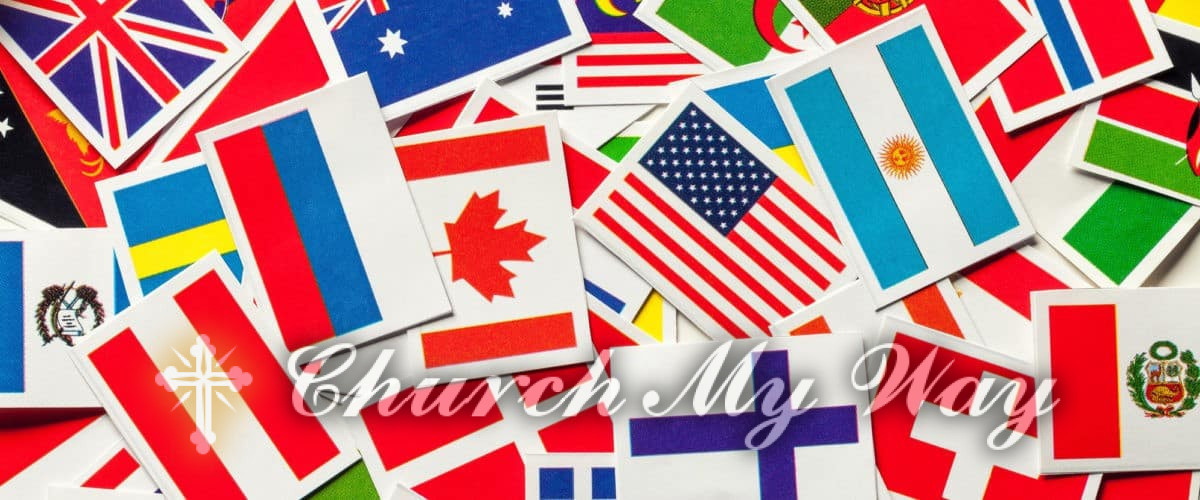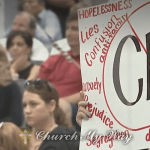It’s not just in the U.S. that people believe different truths about basic facts
It’s not just in the U.S. that people believe different truths about basic facts
Debating what is — and isn’t — the truth has become a worldwide phenomenon, new research shows.
Debating what is — and isn’t — the truth has become a worldwide phenomenon, new research shows.
“In France, the U.S., Italy, Spain and Belgium, half or more think that most people in their country disagree on basic facts more than they agree,” Pew Research Center said in “Diversity and Division in Advanced Economies,” an of newly released survey data.
“Across most societies surveyed, those who see conflict among partisans are more likely to say people disagree on the basic facts than those who do not see such conflicts,” the report noted.
The persistence of unfounded beliefs about the origins of the coronavirus and suspicions about the efficacy of vaccines may be stirring up wider suspicions for some, the researchers added. “This high sense of disagreement over facts may be due, at least in part, to struggles to combat pandemic-related conspiracy theories. In most places surveyed, those who believe COVID-19 has made their society more divided are much more likely to say people disagree over basic facts than those who say COVID-19 has made their society more united.”
What is more certain is the effect the distrust of basic facts has on social cohesion.


When asked if their fellow citizens agree on basic facts, New Zealand led the way with 80% in agreement, while France brought up the rear with 36% agreement and the U.S. was next to last at 41%.
Pew said its study examined the sources of divisiveness in 17 advanced economies, including the U.S. and nations in Asia and Europe.
The Feb. 1 to May 26 study polled 18,850 adults in 17 advanced economies on topics ranging from ethnic and racial divisions, the role of the pandemic in widening social gaps, attitudes about discrimination and the value of social diversity in enhancing the quality of life.
Overall, it found that ethnic, rural and religious differences accounted less for social tensions than political beliefs: “In the majority of places surveyed, more people identify conflicts between people who support different political parties than conflicts between people with different ethnic or racial backgrounds. Political divisions are also seen as greater than the other two dimensions tested: between those with different religions and between urban and rural residents.”
Americans are among the most likely to identify partisan differences as the main source of discord.
“In the U.S. and South Korea, 90% say there are at least strong conflicts between those who support different parties — including around half or more in each country who say these conflicts are very strong. In Taiwan, France and Italy, around two-thirds say the political conflicts in their society are strong. Still, in around half of the surveyed publics, fewer than 50% say the same.”


“In terms of divisions between people who practice different religions and between urban and rural residents, again, Americans consistently rate as one of the three most divided publics of the 17 surveyed,” the researchers explained.
Some of those divisions are by ethnic and racial identity, with 82% of Blacks and 70% of Hispanics reporting conflict, compared to 69% of white respondents.
Americans also reported tensions based on religious differences, with 49% of U.S. adults either “strongly” or “very strongly” agreeing that there are conflicts between religious groups. That trailed only South Korea (61%) and France (56%).
When asked to rate racial discrimination as a problem, 74% of Americans and Germans said it was either “serious” or “very serious,” as did 68% of Canadians and 82% of French and Italian respondents.
“Taiwan, Singapore and Japan are the only places surveyed where majorities say discrimination is either not too serious or not a problem at all,” Pew said.
But Pew said it also learned that majorities of the 17 nations surveyed believe that ethnic, racial and religious diversity make their countries better places to live: “This opinion is most strongly held in Singapore, where 92% say that having people of different ethnic groups, religions and races makes Singapore a better place to live. Eight in 10 or more in New Zealand, the U.S., Canada, the UK, Australia and Taiwan also say having people of many different backgrounds makes for a better place to live.”
That attitude is least common in Greece and Japan, where about half of adults say that “having a diverse society makes their country a worse place to live. Still, this represents significant declines from 2017, when majorities in Greece (62%) and Japan (57%) said diversity makes their country a worse place to live.”


That included Greece, where about six in 10 adults under age 30 say diversity improves society, compared with about four in 10 of those ages 65 and older. “Yet those under 30 are also around twice as likely — or more — as those ages 65 and older to report conflicts between people who support different parties, between different ethnic groups and between different religious groups.”
The survey also detected “a widespread — and growing — sense” that nations are more divided than before the COVID-19 pandemic.
“A median of 61% across the 17 advanced economies say they are now more divided than before the outbreak, and in all but one of the 13 countries also polled in summer 2020, the sense that societies are more divided than united has risen significantly since last year,” Pew said. “Those who describe their society as more divided than before the global health emergency are also significantly more likely to see conflicts between different groups in society and to say their fellow citizens disagree over basic facts.”
Related articles:
| Opinion by Stephen Shoemaker



